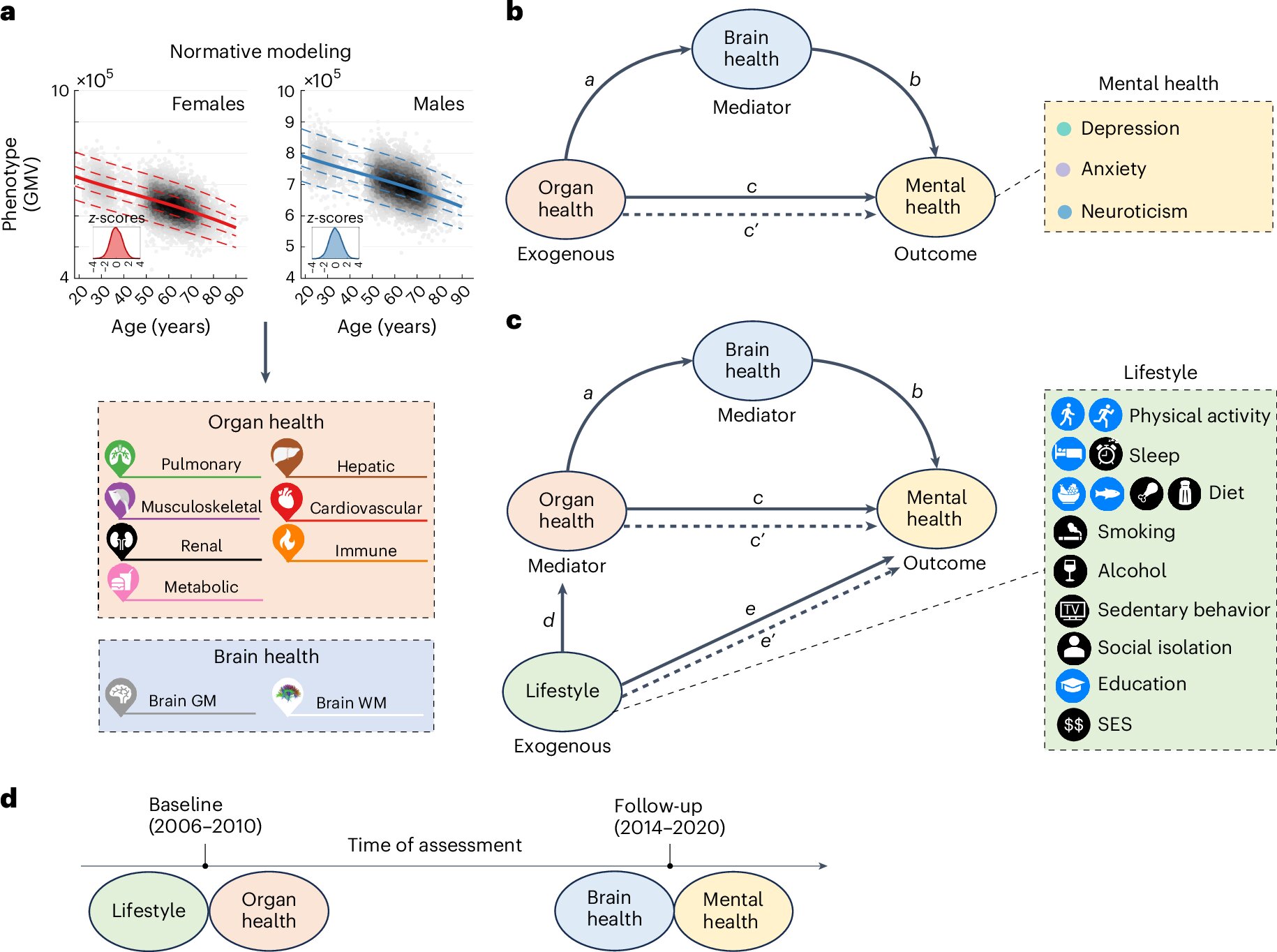Health
Revealed pathways linking body and brain health and the implications for mental health

Overview of study design. Credit: Nature mental health (2024). DOI: 10.1038/s44220-024-00303-4
The interconnectedness of the brain, body and lifestyle factors and how they collectively influence mental health has been demonstrated by new research.
Researchers from the University of Melbourne, University College London and the University of Cambridge have identified multiple biological pathways involving organs and the brain that play a key role in physical and mental health.
The study, published in today Nature mental healthused data from the UK Biobank of more than 18,000 people – 7,749 people in the study had no serious clinically diagnosed medical or mental health problems, while 10,334 people reported a diagnosis of schizophrenia, bipolar disorder, depression or anxiety.
Using advanced statistical models, the researchers found that poorer organ health was significantly associated with higher depressive symptoms, and that the brain plays an important role in the link between body health and depression.
The organ systems examined include the lungs, muscles and bones, kidneys, liver, heart, and the metabolic and immune systems.
“Overall, we identified several important pathways through which poor organ health can lead to poor brain health, which in turn can lead to poor mental health,” said lead author Dr. Ye Ella Tian, research associate at the Department of Psychiatry.
“By integrating clinical data, brain imaging and a wide range of organ-specific biomarkers in a large population-based cohort, we were able to identify, for the first time, multiple pathways involving the brain as a mediator and through which poor physical health of body organ systems can lead to poor mental health.
“We have identified modifiable lifestyle factors that could potentially lead to better mental health through their impact on these specific organ systems and neurobiology.
“Our work provides a holistic characterization of brain, body, lifestyle and mental health.”
Physical health was also taken into account, as well as lifestyle factors such as sleep quality, diet, exercise, smoking and alcohol consumption.
“This is an important body of work because we have shown the link between physical health and depression and anxiety and how that is partly influenced by individual changes in brain structure,” said Professor Andrew Zalesky from the Departments of Psychiatry and Biomedical Engineering.
“Our results suggest that poor physical health of multiple organ systems, such as the liver and heart, immune system, and muscle and bone, can lead to subsequent changes in brain structure.
“These structural changes of the brain can cause or worsen symptoms of depression, anxiety and neuroticism.”
Professor James Cole, author of the study from UCL Computer Science, said: “Although it is well known in healthcare that all organs and systems of the body influence each other, this is rarely reflected in research studies. So it’s exciting to have these results because it really highlights the value of combining measurements from different parts of the body.”
More information:
Ye Ella Tian et al., Brain, lifestyle and environmental pathways linking physical and mental health, Nature mental health (2024). DOI: 10.1038/s44220-024-00303-4
Quote: Pathways Linking Body-Brain Health and Impact on Mental Health Revealed (2024, August 9) Retrieved August 10, 2024 from https://medicalxpress.com/news/2024-08-pathways-linking-body- brain-health.html
This document is copyrighted. Except for fair dealing purposes for the purpose of private study or research, no part may be reproduced without written permission. The content is provided for informational purposes only.













